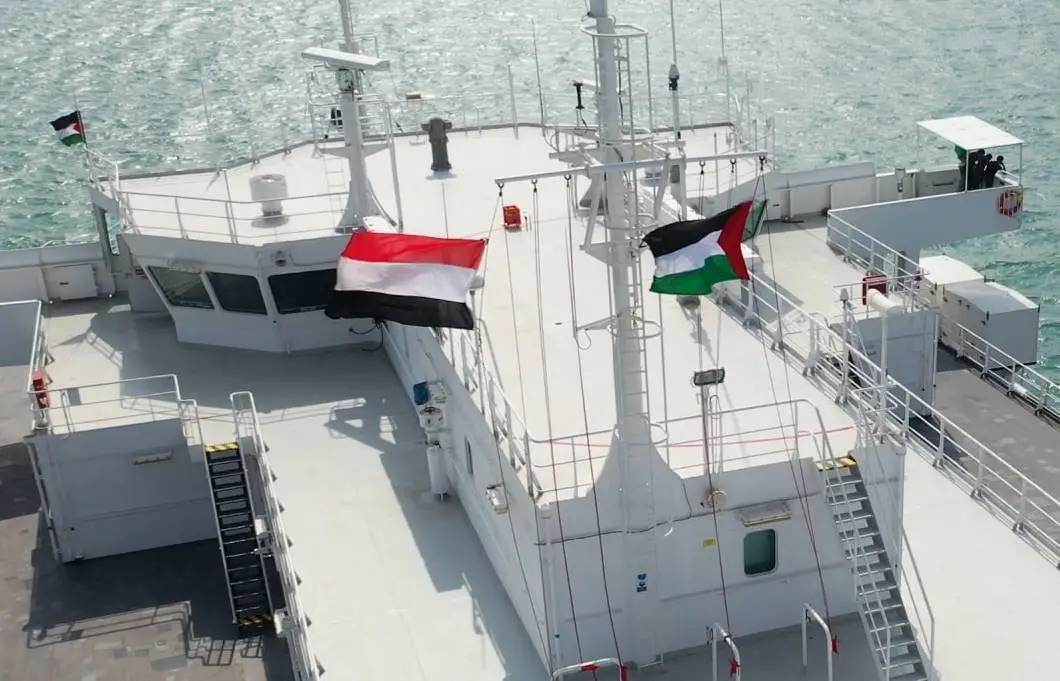Oil Rises Amid Red Sea Tensions, Houthis Threaten To "Not Stop" Attacking Ships
Discover the latest developments as oil rises amid Red Sea tensions, with insights into the geopolitical tensions affecting global markets and the implications for trade and energy prices.
Author:Paula M. GrahamReviewer:Hajra ShannonDec 20, 20231.8K Shares68.8K Views

The global market of oil rises amid Red Sea tensions. Brent crude futures increased by 23 cents, a 0.3% rise, reaching $79.46 a barrel by 0730 GMT. Similarly, U.S. West Texas Intermediate crude witnessed a 0.4% increase, climbing 30 cents to $74.24 a barrel.
This surge follows a more than 1% increase on Tuesday, driven by concerns over potential disruptions in global trade and growing geopolitical unrest in the Middle East, particularly due to recent Houthi attacks on shipping in the Red Sea.
U.S. Response And Houthi Defiance
In response to these attacks, the United States initiated a task force to ensure the safety of commerce in the Red Sea. However, this move has not alleviated widespread apprehensions about the security of passage through this critical region.
"Thus far, the U.S.-led naval mission to mitigate Houthi attacks has failed to ease broad concerns of safe passage through the Red Sea, with major maritime carriers still choosing to steer clear amid the tensions," observed Yeap Jun Rong, a market strategist at IG.
Complicating matters, the Iran-aligned Yemeni Houthi militants have vowed to continue their assaults on Red Sea shipping, a stance aimed at supporting the Palestinian enclave in Gaza's ruling Hamas movement. Their relentless stance, despite the formation of the U.S.-led task force, exacerbates the situation.
Mohammed Albukhaiti, a member of the Houthi ruling council, stated to The Washington Post, "Our war is a moral war, and therefore, no matter how many alliances America mobilizes, our military operations will not stop."
Economic Implications and Strategic Responses
The Red Sea is a vital maritime corridor, with approximately 12% of world shipping traffic passing through it. While the immediate impact on oil supply remains limited, as the majority of Middle Eastern crude exports occur via the Strait of Hormuz, the situation has caused significant concern among global traders and oil markets.
In the U.S., efforts to bolster the Strategic Petroleum Reserve (SPR) continue, with the Energy Department confirming the purchase of 2.1 million barrels of crude for delivery in February. This procurement is part of an ongoing strategy to replenish the SPR following its largest sale in history last year.
Meanwhile, U.S. crude and fuel inventories reportedly rose last week, contrary to analysts' predictions of a decline, with official data expected from the U.S. Energy Information Administration.
S&P Global Commodity Insights highlights the U.S.'s burgeoning role in global oil production. "Not only is the United States producing more oil than any country in history, but the amount of oil (crude oil, refined products and natural gas liquids) that it is exporting is near the total production of Saudi Arabia or Russia," stated Jim Burkhard, a vice president at S&P Global.
Maritime Security And Coalition Efforts
The severity of the Houthi attacks, which have already damaged several vessels, has led to significant changes in maritime operations. Numerous shipping companies have either halted their ships from entering the Bab el-Mandeb Strait or rerouted them, incurring additional costs and delays.
Defense Secretary Lloyd Austin announced the formation of Operation Prosperity Guardian, a multinational security initiative aimed at addressing these challenges. "This is an international challenge that demands collective action," Austin said. The operation aims to provide a broader security umbrella to commercial vessels in the region rather than escorting specific ships.
In defiance of these efforts, Mohammed Abdel-Salam, the Houthis' chief negotiator and spokesman, reiterated their commitment to continue targeting Israel-linked vessels.
"The American-formed coalition is to protect Israel and militarize the sea without any justification, and will not stop Yemen from continuing its legitimate operations in support of Gaza," he declared on social media.

Paula M. Graham
Author

Hajra Shannon
Reviewer
Latest Articles
Popular Articles